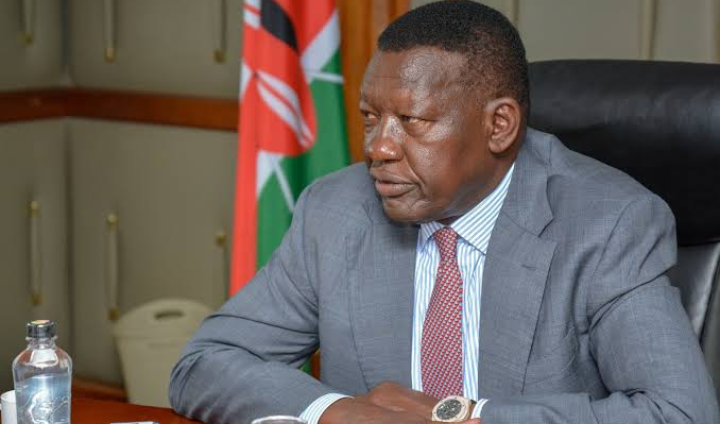Davis Chirchir, a key figure in the Ruto administration, is deeply implicated in the controversial termination of contracts with the Adani Group, particularly involving Jomo Kenyatta International Airport (JKIA) and the Kenya Electricity Transmission Company (Ketraco).
His role in facilitating these deals has raised serious concerns about corruption, lack of accountability, and the erosion of governance standards within the Kenyan government.
The termination of these contracts came after mounting public backlash and legal challenges, highlighting deep flaws in the processes that led to the agreements.
Critics argue that the contracts lacked transparency and violated principles of good governance, putting taxpayers at risk of enormous financial losses.
The proposed Sh239 billion project at JKIA, under a 30-year build-operate-transfer (BOT) framework, is a key example of this.
The project was criticized for poor planning, favoritism toward Adani, and an apparent disregard for the competitive bidding process required under Kenya’s Public-Private Partnership (PPP) Act.
These issues raised concerns about the fairness and legitimacy of the contract, and many pointed to Chirchir’s influence as a key factor in ensuring the deal proceeded despite widespread objections.
Chirchir’s involvement in these deals is particularly concerning given his controversial past.
His name is associated with the infamous “Chickengate” scandal, a high-profile bribery case that damaged his credibility.
As Chief of Staff, Chirchir was in a position to influence key decisions, and his role in facilitating Adani’s entry into Kenya has been on the spot.
Reports suggest that his influence played a crucial part in advancing these contracts, bypassing due process and disregarding warnings from aviation and energy sector experts.
This raises questions about whether these deals were driven by personal or political interests rather than the public good.
The Adani Group, already facing a host of corruption accusations internationally, has further complicated the situation.
The U.S. Department of Justice recently unveiled a criminal indictment against Adani for a $250 million bribery scheme targeting Indian officials to secure solar contracts.
This indictment calls into question the integrity of Adani’s operations, not only in India but also in Kenya.
With such a tainted reputation, it is concerning that the Kenyan government would partner with a company facing criminal charges for bribery and financial misrepresentation.
Legal challenges from the Law Society of Kenya (LSK) and the Kenya Human Rights Commission (KHRC) have intensified the probe of these deals.
Both organizations argue that the contracts jeopardized national assets and violated principles of accountability and fiscal responsibility.
The judiciary’s involvement underscores the growing discontent with these shady agreements, which appear to prioritize private interests over public welfare.
The fallout from these canceled contracts reflects poorly not only on Adani but also on the Kenyan government, particularly Davis Chirchir.
His continued involvement in public office, despite his checkered past, highlights systemic failures in governance.
The handling of these contracts poses the need for urgent reforms to ensure transparency, accountability, and responsible stewardship of public resources.
Kenya’s leadership must take immediate steps to prevent the exploitation of national assets for personal or corporate gain, ensuring that future partnerships serve the interests of the Kenyan people.





















Add Comment